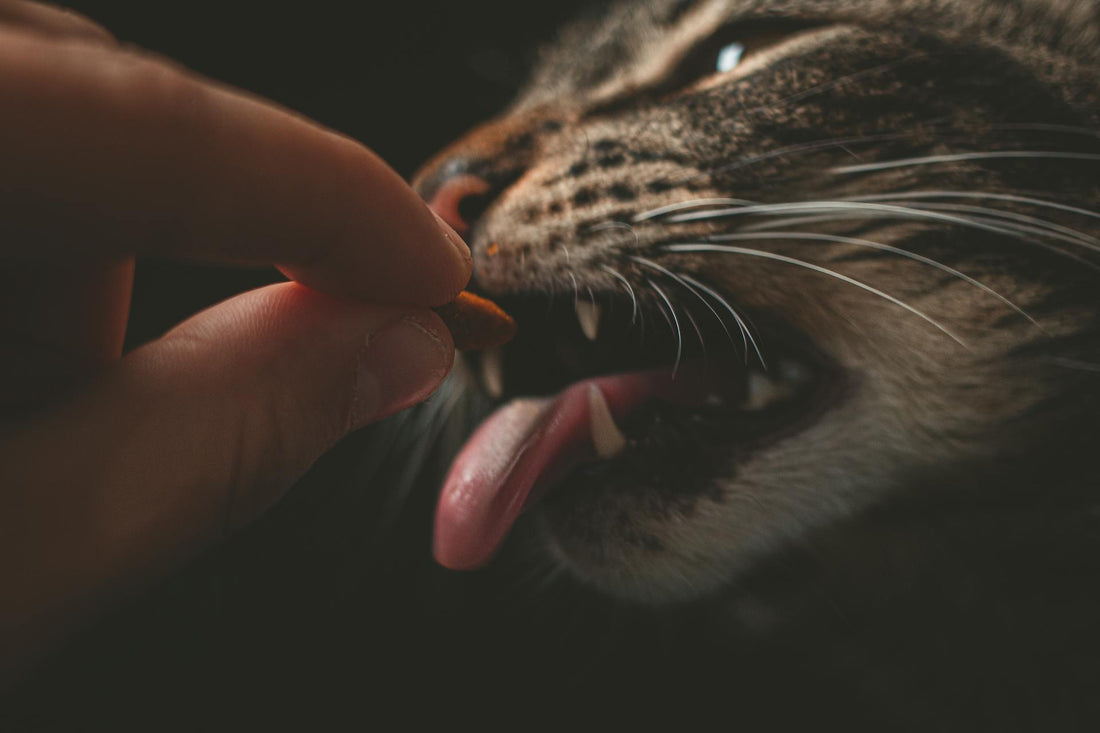
The Hidden Dangers of Human Food for Cats
Share
You may have wondered what human foods are safe for your feline friend to eat. While some human foods may seem harmless, they can actually be toxic to cats. In this article, we'll explore some common human foods that are poisonous to cats and what you can do to keep your cat safe.
Onions and Garlic
Onions and garlic are two common ingredients that are toxic to cats. These plants contain a compound called N-propyl disulfide, which can cause damage to a cat's red blood cells. If your cat ingests onions or garlic, they may experience symptoms such as vomiting, diarrhea, and lethargy.
Chocolate
Chocolate is a popular treat for humans, but it's toxic to cats. Theobromine, a compound found in chocolate, can cause a range of symptoms in cats, including vomiting, diarrhea, and increased heart rate. Dark chocolate and baking chocolate are particularly dangerous, as they contain higher levels of theobromine.
Grapes and Raisins
Grapes and raisins are two common fruits that are toxic to cats. While the exact mechanism is unknown, eating grapes or raisins can cause kidney failure in cats. If your cat ingests grapes or raisins, they may experience symptoms such as vomiting, diarrhea, and lethargy.
Macadamia Nuts
Macadamia nuts are a popular snack for humans, but they're toxic to cats. These nuts contain a compound called macadamia acid, which can cause symptoms such as vomiting, diarrhea, and weakness in cats.
Raw or Undercooked Meat
Raw or undercooked meat can contain bacteria such as Salmonella and E. coli, which can cause food poisoning in cats. Cooking meat thoroughly can help kill these bacteria, but it's still important to avoid giving your cat raw or undercooked meat.In conclusion, there are many human foods that are toxic to cats. By avoiding these foods and providing your cat with a balanced and nutritious diet, you can help keep them safe and healthy. Remember, it's always better to err on the side of caution when it comes to your cat's diet.
Note: This article is for informational purposes only and should not be used as a substitute for professional veterinary advice. If you suspect your cat has ingested a toxic substance, please consult with a veterinarian immediately.
References:
1. Journal of Feline Medicine and Surgery, "Toxicity of Human Foods to Cats" (2018)
2. Animal Behaviour, "Feline Food Preferences and Toxicity" (2020)
3. Journal of Comparative Psychology, "The Effects of Human Foods on Feline Health" (2019)
